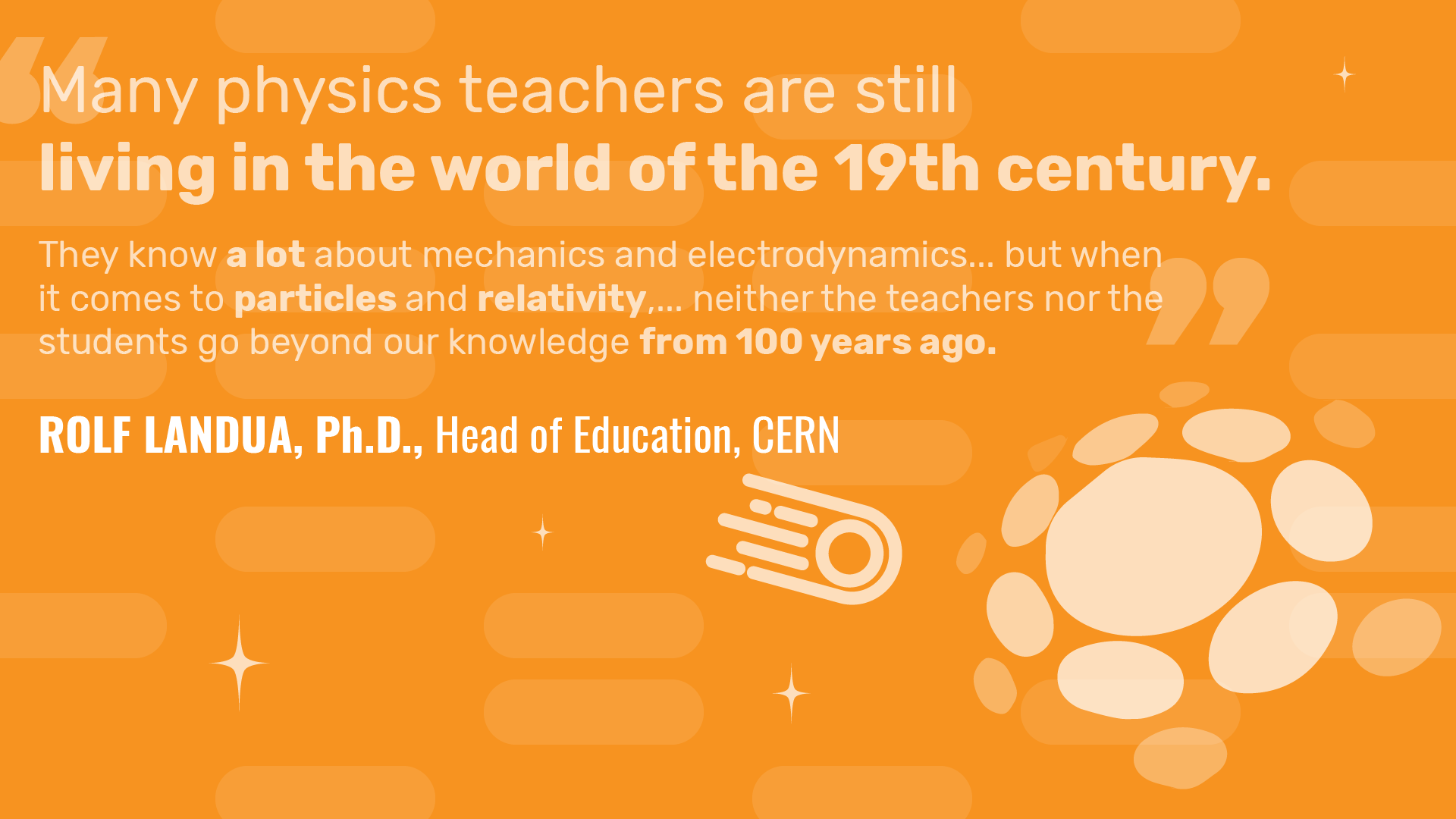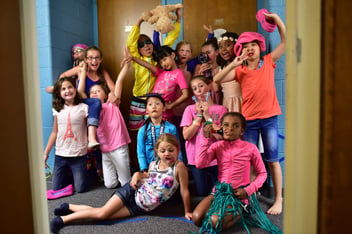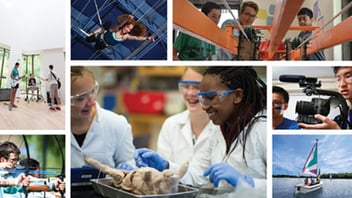Assessment is Ruining the Universe (or at Least our Understanding of It)

Rolf Landua, Ph.D., is on a mission to change the landscape of science education. He chatted with EXPLO about the importance of curiosity in the classroom and how too much testing inhibits joyful learning — and deeper understanding of Nature and the universe.
Yes, you can learn particle physics.
That may seem like a bold statement, but hear us out. Or, rather, take it from Rolf Landua — head of education at CERN who recently shared his perspective on the state of physics education and how one of the leading science institutions in the known world (home to the Large Hadron Collider) favors curiosity and learning through exploration over testing and evaluation.
Dr. Landua and his team work with more than 1,000 teachers and 140,000 visitors annually to enhance their understanding of particle physics, and to expose them to a dynamic research environment where experts continue to explore the mysteries of the universe. One of their goals is to take the fear and anxiety out of learning particle physics and make it accessible to more than just the three percent of people who can calculate differential equations. Here are some highlights from our conversation.
We’re Doing it Wrong: Physics Education
“Many physics teachers are still living somehow in the world of the 19th century. So they know a lot about mechanics and electrodynamics and all that stuff — acoustics, optics, thermodynamics, and so on — but when it comes to particles and relativity, very often they are roughly at the level of 1905 to 1915. Neither the teachers nor the students go beyond our knowledge from about 100 years ago.”
At CERN, Dr. Landua and his team are working to close that gap — or at least get educators more comfortable with the basics of particle physics — in their weeklong courses.
“Of course, in a week, it’s difficult to make particle physicists, or fundamental physicists, out of a physics teacher. I would say it is more like an exercise in building up confidence and enthusiasm about the subjects — and maybe some hope that one day the curriculum might change and include these topics!”
Exploration — not Evaluation — Should be the Goal
“Nowadays we live in this evaluation frenzy where people want to evaluate virtually everything you do. You say ‘good morning’ and you are already being evaluated on how you said ‘good morning.’ This is something we try not to do. We’re not testing the teachers at the end of our course to determine if they have understood anything. That is not the point. The point is really to make the best possible effort, on our side, to reach a large number of people and to ignite their enthusiasm and their self-confidence.”
It is such a positive thing to learn — and not just because you have to, or in order to pass a stupid test. We really should rethink our educational system.
The goal is to stimulate curiosity, Dr. Landua says. Because if an individual has the desire to discover more about a subject, he says, they will find a way to access the information they need to dig deeper. It’s a motivation exercise — not a knowledge exercise.
“In the end, we are convinced that when the teacher wants to learn more about particle physics, the teacher will be able to do it. But you have to know how to look and where to look. What we are trying to provide is the big picture, so once you have the framework you have a skeleton — and then you can put the flesh on the skeleton by yourself.”
The Nature of the Problem
To hear Dr. Landua speak of it, physics is as much philosophy as it is mathematics. He defines physics as the simplest level of Nature — what is Nature made of and how does it work? And the difference between physics and chemistry and biology is simply scale. What he would love for students to understand is what everything is made of and how it fits together to form the nature of the universe as we know it.
The trouble is, calculations (and a student’s ability to apply formulas to solve equations) are much easier to quantify and evaluate than their understanding of Nature.
“In physics teaching, people try very much to emphasize the quantitative nature of science by trying to give laws. You can calculate something and in the end you come out with a result and the teacher is happy, the curriculum is happy, because you want to show that physics is something quantitative — that there are rules and if you apply the rules then you can calculate things and test and compare them.”
That’s not to say that the computations are unimportant. But you don’t need to know how to do the calculations to understand the concepts.
“I’m not saying you should completely throw out calculations. But… if you come out of a physics class and you don’t understand the world — why mountains are only 10 km high at most across the Earth, how a cloud comes about, or why the sky is blue — if you don’t understand these things then the physics teaching has failed. I mean, what is more important — to find an easy way of evaluating things or to have a population that understands what happens with global warming?”
The Case for Curiosity
The world has grown incredibly complex since the “simpler” time of the second phase of the Big Bang, Dr. Landua says, and it’s our duty to educate young people about how things work — not simply to be users of technology that they don’t understand. Curiosity is what makes us human, he says, and when we give that up we give away a huge part of our humanity.
“It is such a positive thing to learn — and not just because you have to, or in order to pass a stupid test,” Dr. Landua says. “Having [so many] tests in every subject per year makes kids hate school because they have to learn something just to get through an exam. The only thing they do is learn it by heart and forget it five minutes later. We really should rethink our educational system.”
Rolf Landua is a particle physicist whose research focuses on antimatter, and he is the co-founder of an experiment producing millions of antihydrogen atoms (The ATHENA Project). Dr. Landua is the head of education and outreach at the European Organization for Nuclear Research (CERN) and has advised EXPLO on physics curriculum. He is a sought-after educator and researcher in the international community whose work is changing the landscape of science education.



